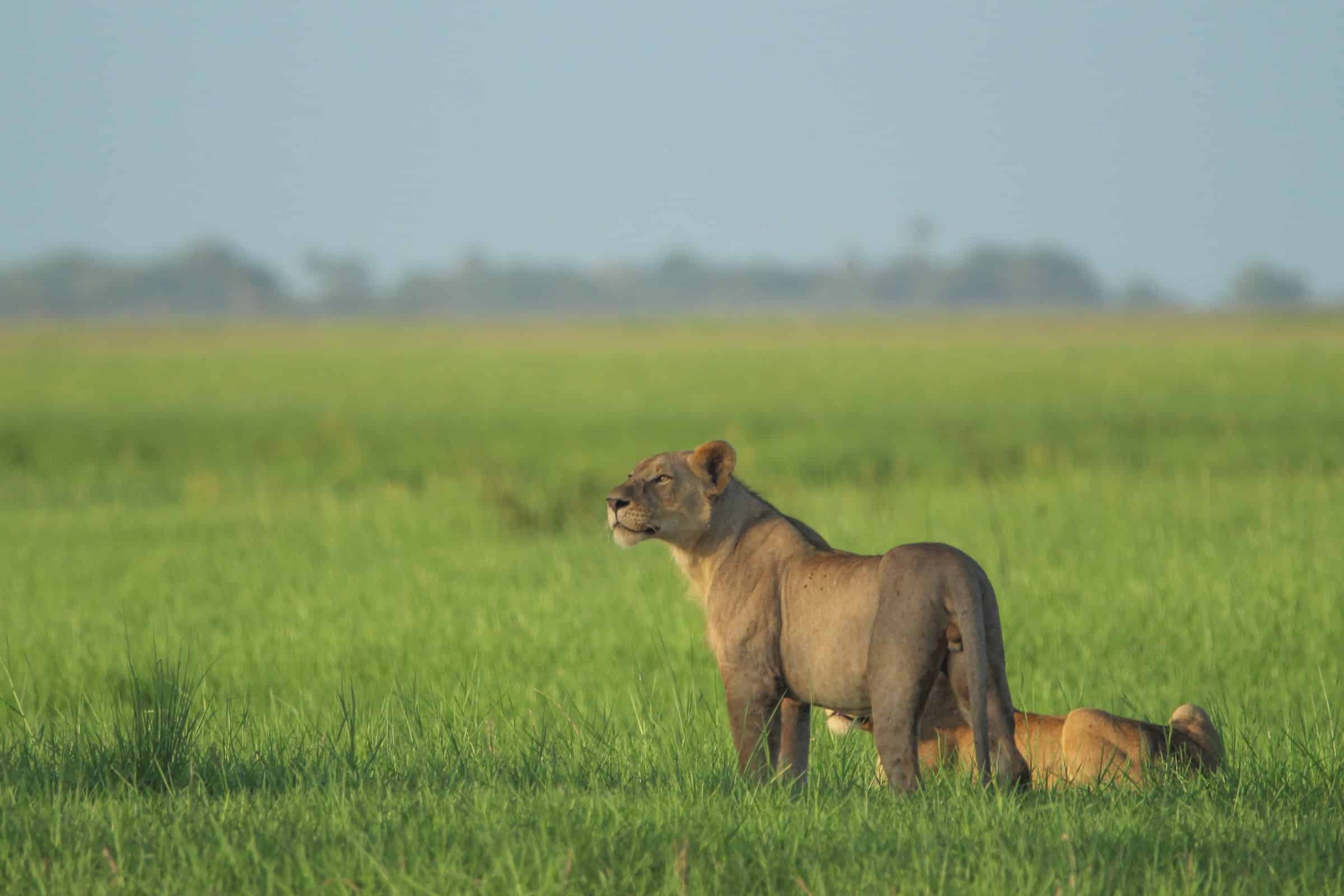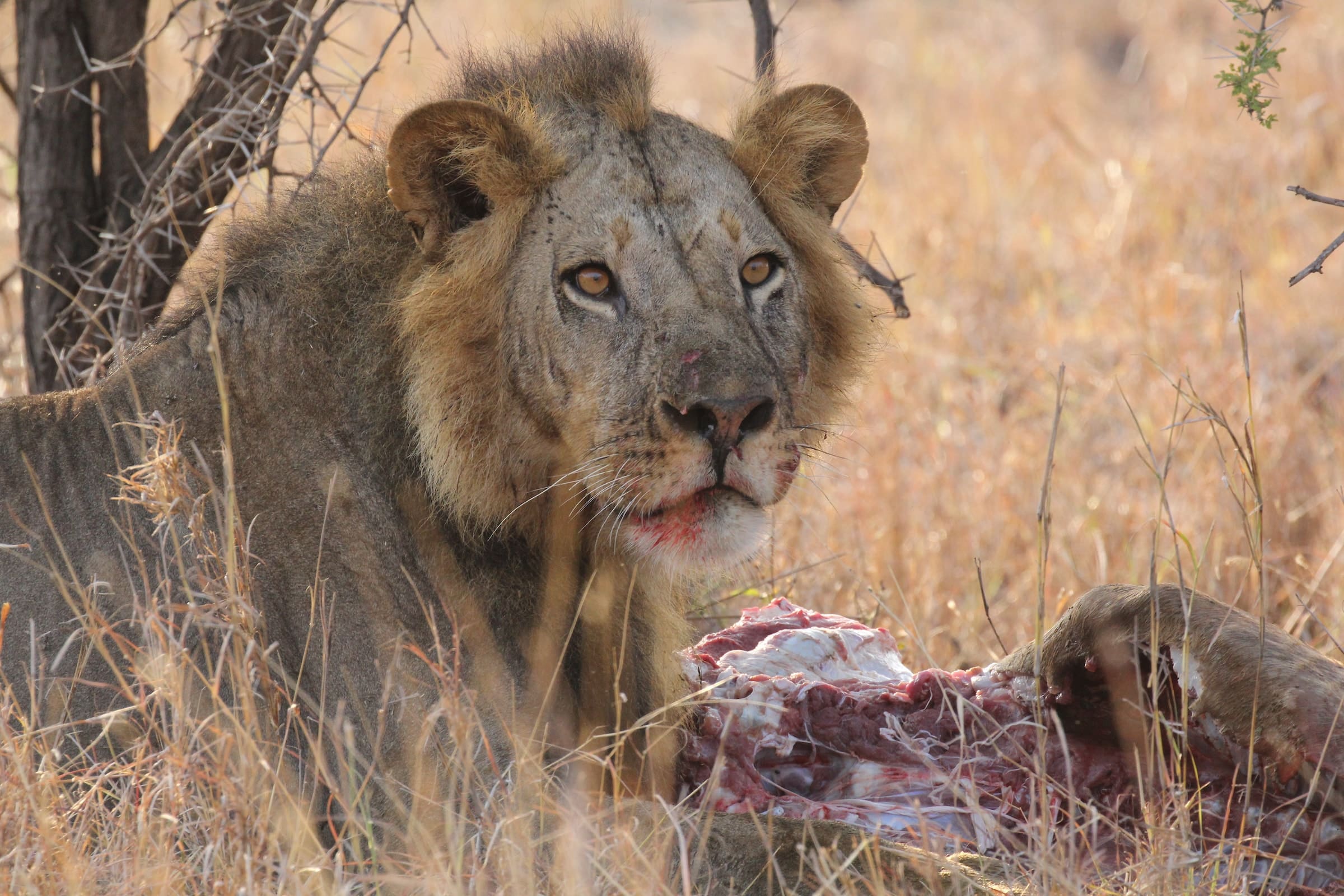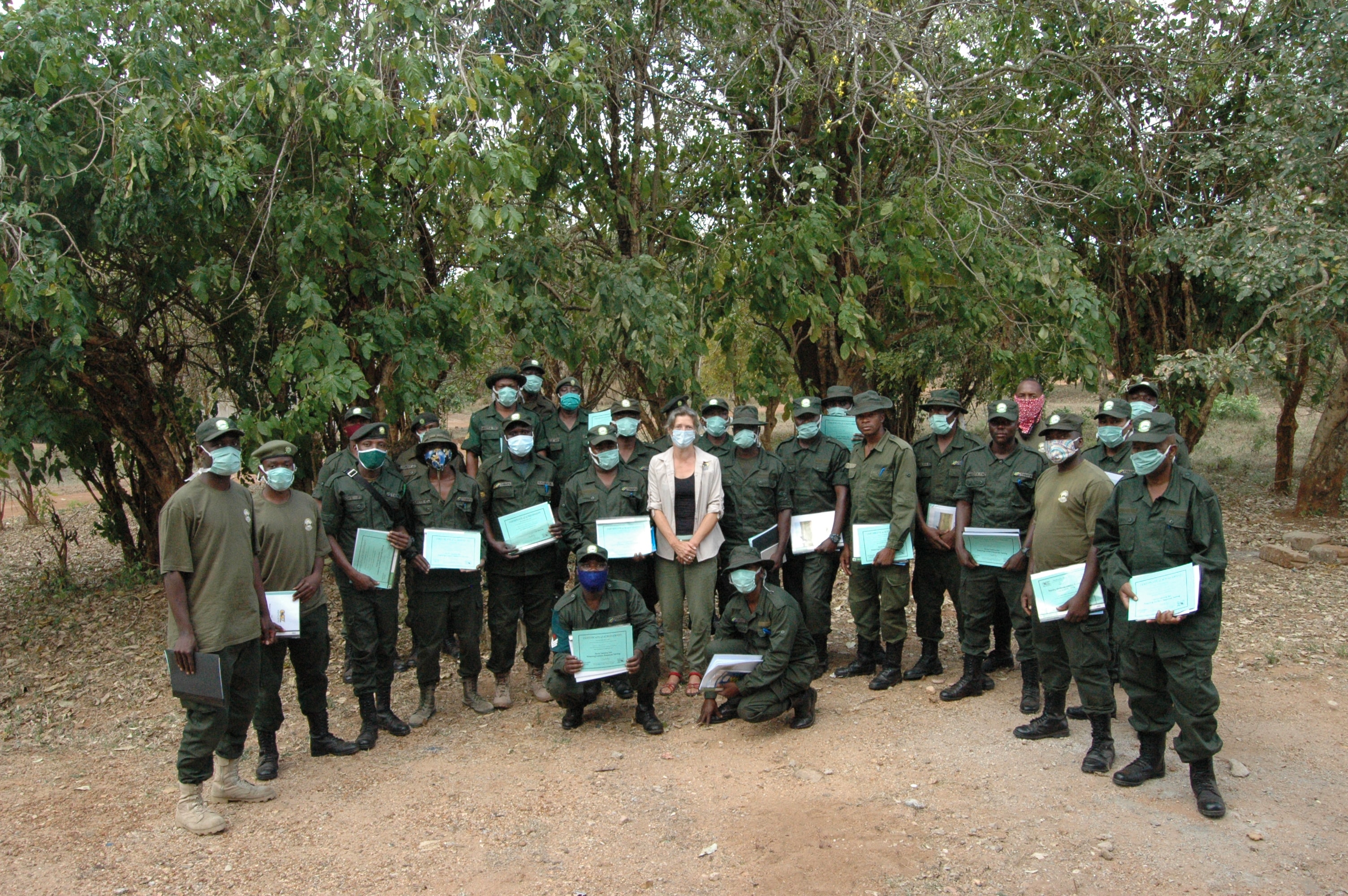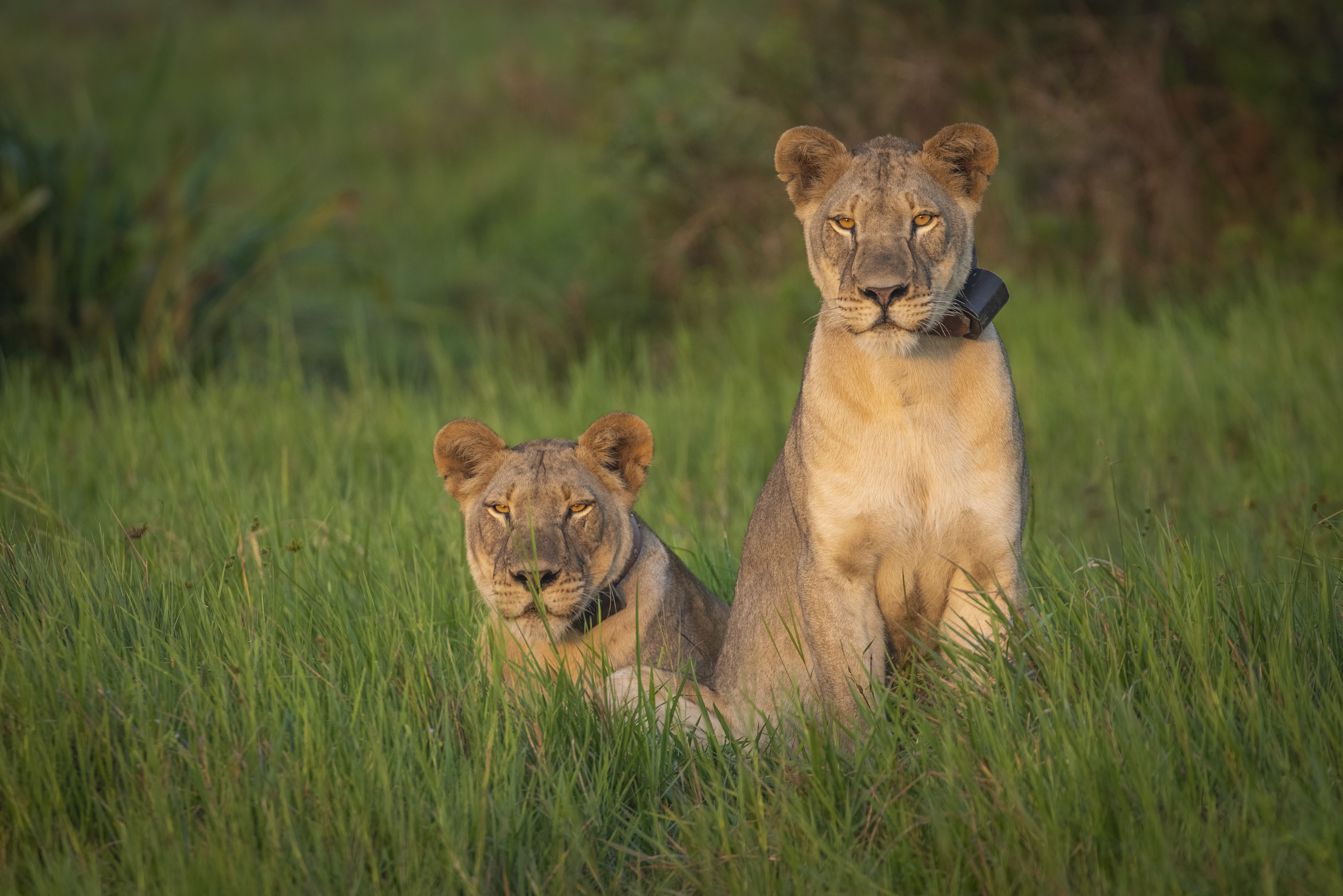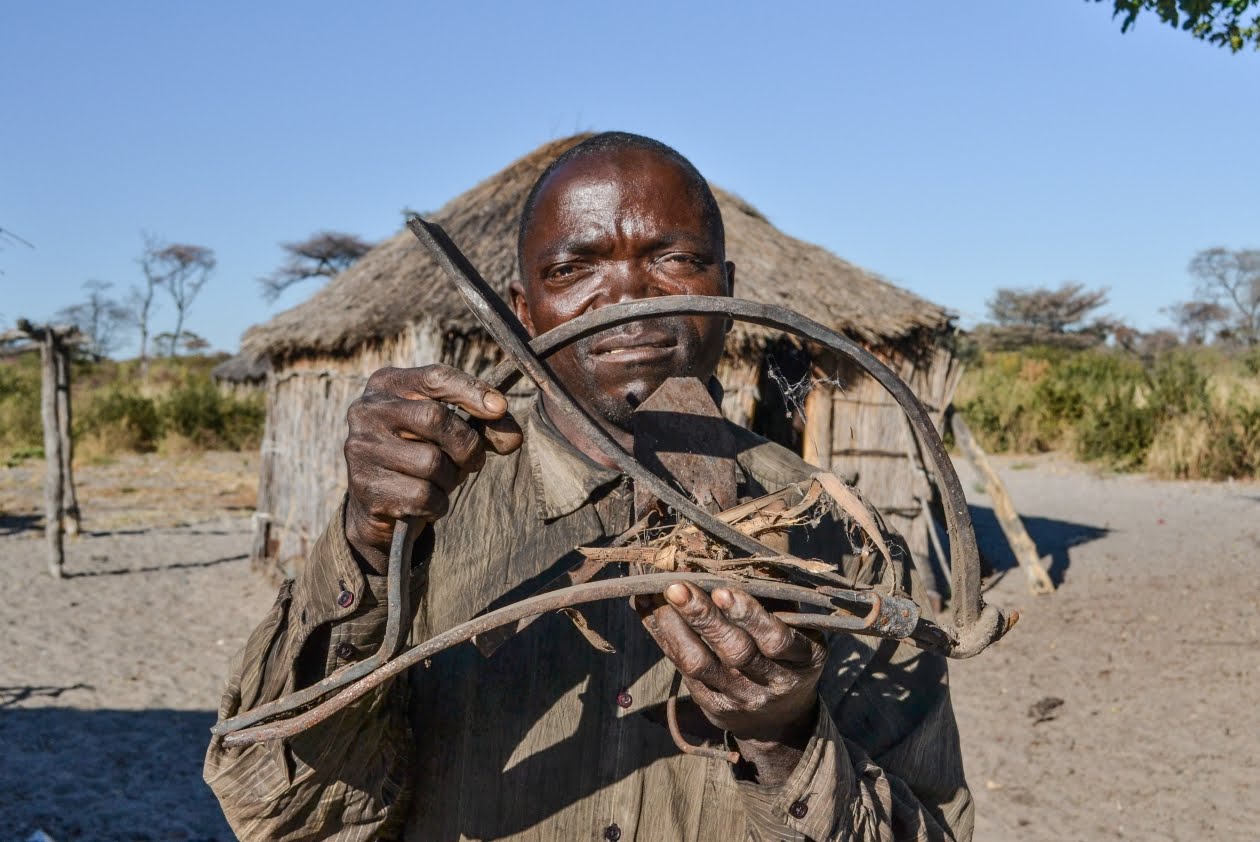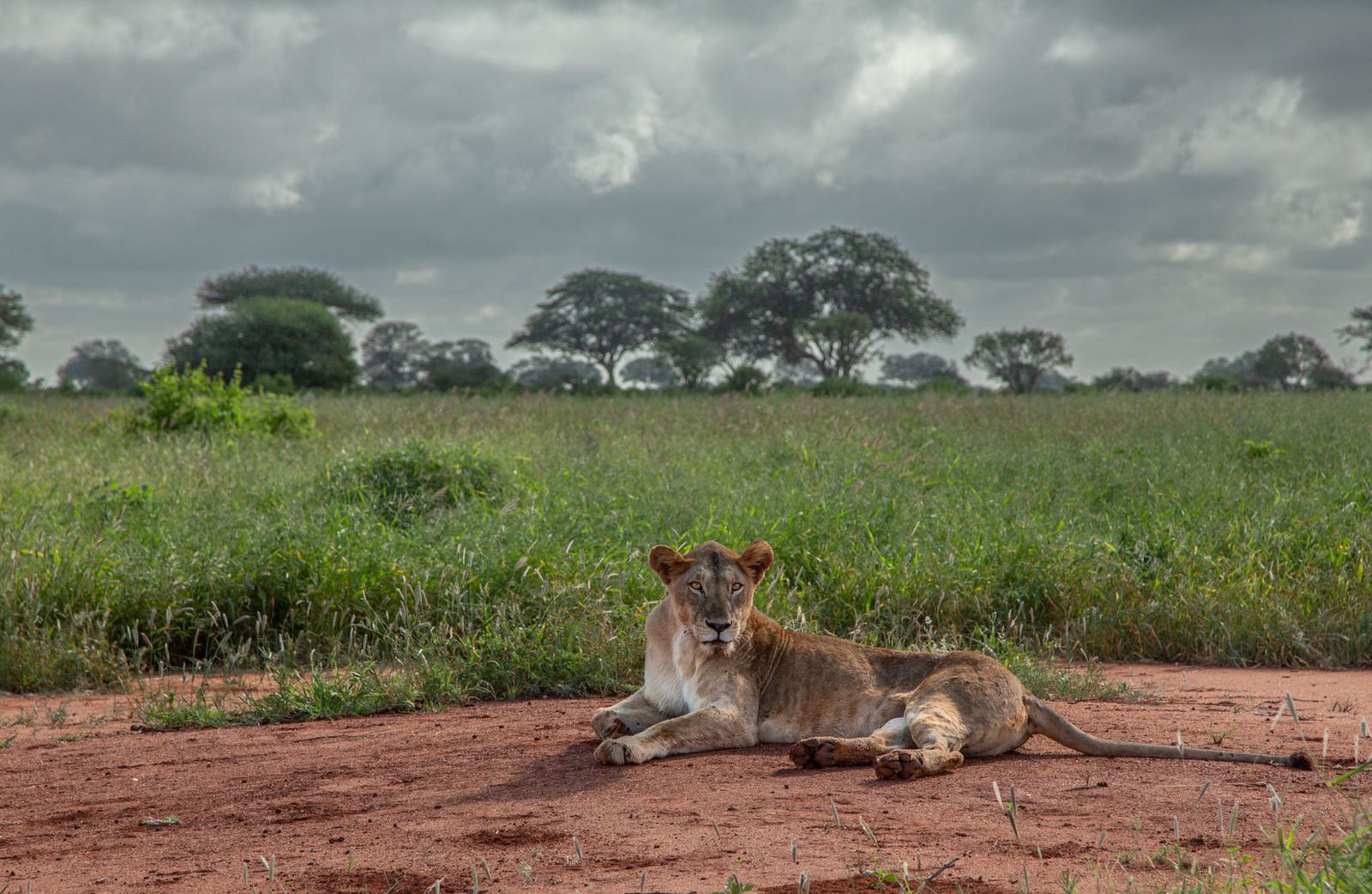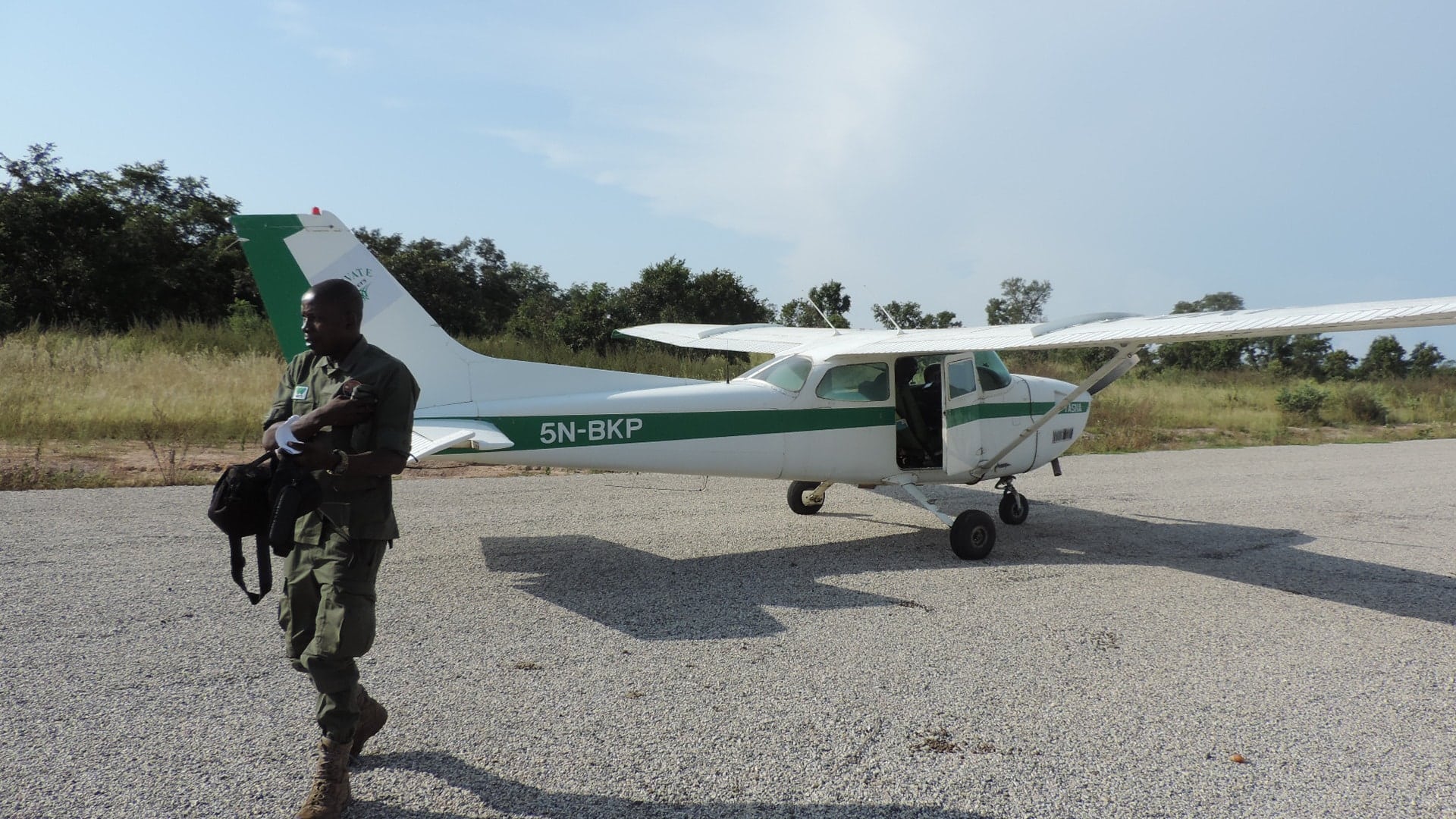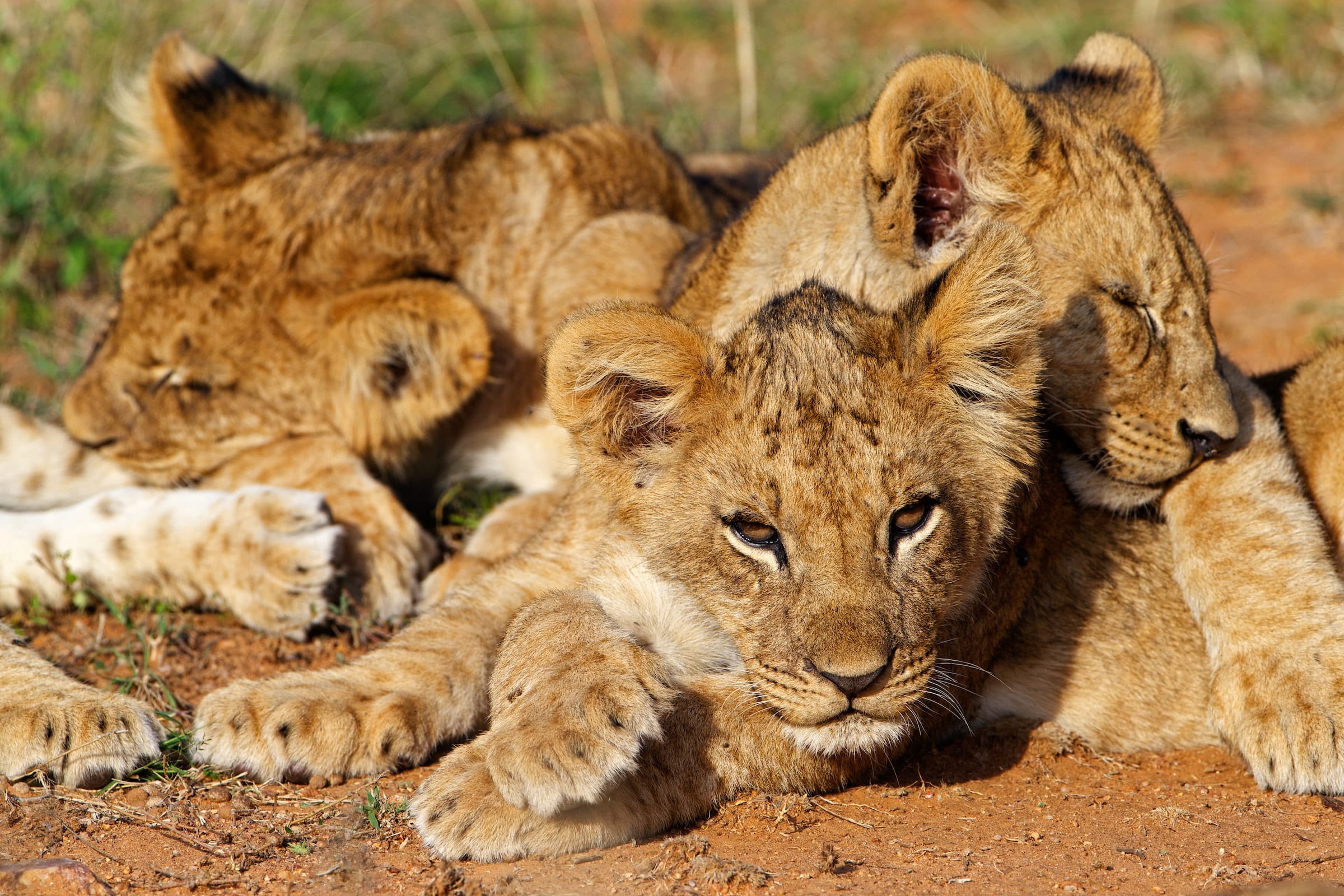As we begin a new year, conservation in Africa continues to grapple with a combination of old and new challenges. Before COVID, it was clear that conservation across the continent was undermined by a lack of funding. Travel restrictions continue to hamper the tourism industry, cutting revenues to government wildlife authorities and community conservancies. Your investment in the LRF is a key part of getting much needed funding to conservation that does not rely on tourism.
The LRF’s investments affect biodiversity, climate, and the people who live in and around Africa’s majestic conservation areas. With lions as our primary focus, we can address all of these issues together. Fortunately, there are early signs that lions are recovering or stable in roughly 80% of the sites that are supported by the LRF where lion numbers are monitored. With that, please read through the latest LRF progress report to see all the ways in which your investment is saving lions and so much more.
- 188 Projects supported
- 68 Grantees funded
- 23 Countries operated in
- $23.7M Granted
LRF Project Map
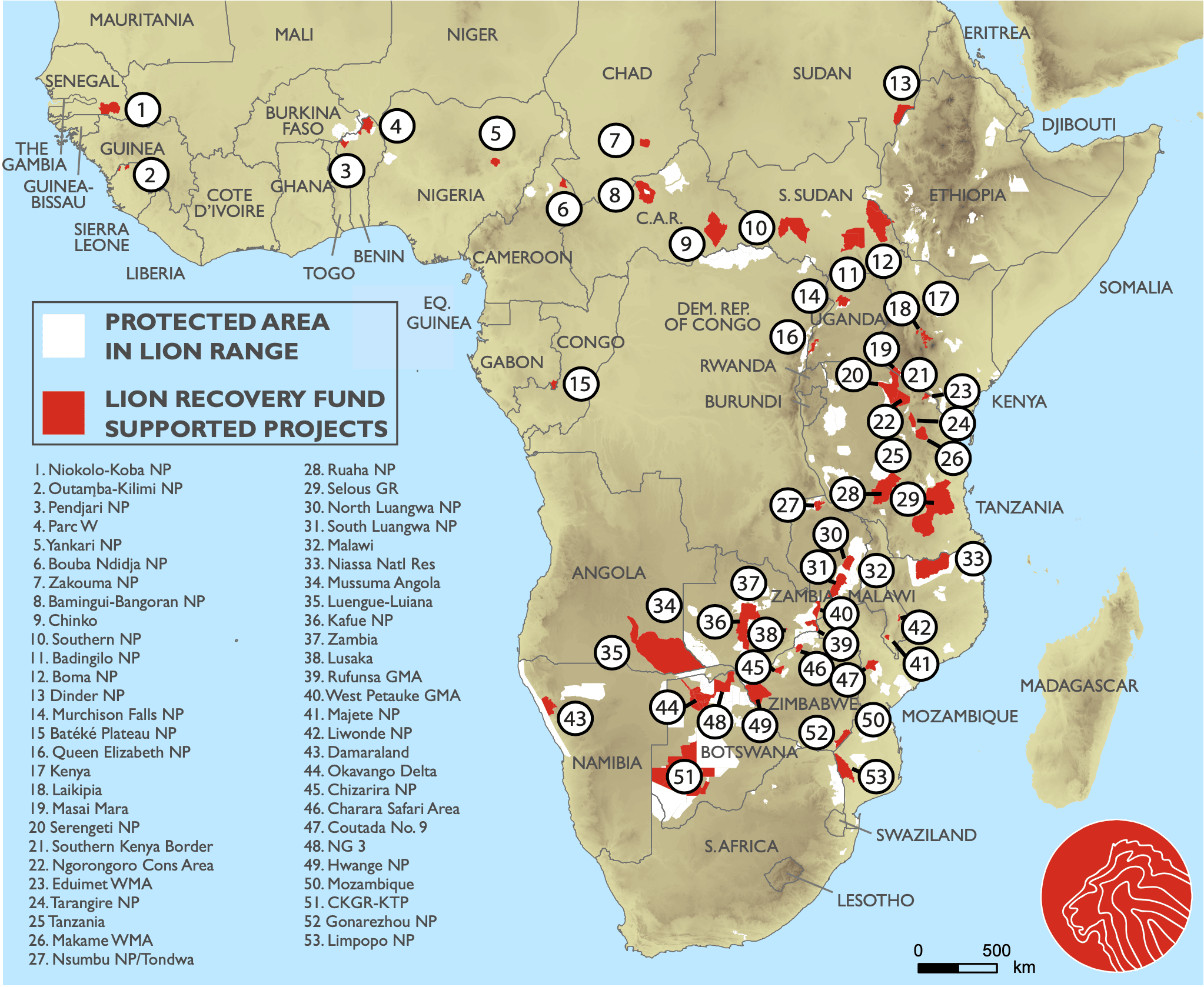
Highlighted Projects
African Parks
The W-Arly-Pendjari (WAP) complex, spanning Benin, Burkina Faso, and Niger is the stronghold for the Critically Endangered West African lion. African Parks have a mandate to manage both Pendjari National Park and Parc W on the Beninese side and LRF has supported their work in both parks. In January 2022, the LRF granted $150,000 to help African Parks manage the challenge posed by massive influxes of livestock. Livestock are driven into the park by nomadic pastoralists and pose an existential threat to the park both due to competition with wild ungulates for grazing and also because of the threat of retaliatory killing of predators. African Parks has a plan to gradually increase the proportion of the park that is free of livestock, while working very closely with the pastoralist communities to find solutions that work for both sides.
Frankfurt Zoological Society
Tanzania’s Selous Game Reserve—now split into Nyerere National Park (NNP) and Selous Game Reserve (SGR)—is one of Africa’s largest protected areas and contains a critically important population of lions. The exact status of lions in Selous is not known, but it is possible that the reserve contains one of largest populations of the species in the world. The Frankfurt Zoological Society supports law enforcement in SGR/NNP, working hand-in-hand with the Tanzania Wildlife Authority and Tanzania National Parks Authority. LRF funding supports the deployment of a de-snaring team around part of the boundary that is acutely affected by bushmeat snaring, and supports general operations, including aerial surveillance and the deployment of rangers.
The LRF issued a grant to conservationist Deo Tarimo through the organization Lion Landscapes. Deo is a Tanzanian national and a promising new conservationist working in a key landscape. The grant will help him kickstart lion conservation in this park for the first time, and to allow him to receive significant capacity building and training from the Lion Landscapes Tanzania team. Deo will use the funding to better understand and systematically tackle the threats facing lions in the Mkomazi ecosystem.
Mozambique Wildlife Alliance
In 2021, the LRF issued a grant to the Mozambique Wildlife Alliance designed to support the management of concession land within the vast Zambezi Delta complex of protected areas. This is an area where lions were reintroduced in 2018 and are increasing rapidly. LRF support will help expand the area under effective management, thus helping expedite recovery. There is exceptional recovery potential in this landscape, due to the very high and increasing densities of prey animals there.
Niokolo-Koba National Park holds the last remaining population of lions in Senegal. It is a vast landscape, encompassing 3,513 square miles—ten times larger than New York City. The LRF has provided a series of grants to enable Panthera to gradually expand and effectively manage and protect the area. These efforts are bearing fruit, as the lion population has increased from 10-15 individuals in 2011 to 30-40 today. Prey populations are also increasing as a result of these grants.
Panthera also secured an agreement with the Angolan government to provide financial and technical support for the management in the vast Luengue-Luiana National Park, a 30,000 square mile landscape. There are few places in Africa with greater potential for lion recovery. At present, lion numbers are estimated to be as low as 30 individuals, but a park of this size could potentially support hundreds or even thousands of lions if it was adequately protected and if prey populations were allowed to recover. The LRF provided Panthera a series of grants to help them deploy community scouts and support the Angolan wildlife authorities to protect and manage part of this landscape.
Wildlife Crime Prevention
The bushmeat trade is the single greatest threat to wildlife in Zambia. The LRF provided Wildlife Crime Prevention (WCP) with a series of grants to develop a focused bushmeat program, designed to tackle the illegal and commercial trade in bushmeat. This threat affects lions both by reducing the prey on which they depend, and also by causing direct mortality of lions in snares. With LRF support, WCP is adopting a multi-pronged strategy to deal with this threat. This includes intelligence-based anti-trafficking to disrupt trade in bushmeat, support for the judiciary when dealing with bushmeat-related crimes, demand-reduction campaigns, and the provision of alternative legal game meat supplies.
Tsavo Trust
The Tsavo ecosystem is a critical stronghold for lions in Kenya. However, the park is subject to serious pressure from bushmeat snaring and illegal livestock incursions. These incursions create competition for grazing with wild ungulates and also pose a risk of lions and other predators being poisoned by herders wishing to protect their cattle. The LRF issued a grant to Tsavo Trust to deploy a team, in partnership with the Kenya Wildlife Service, to specifically tackle these issues.
Landscape and Conservation Mentors Organization
Landscape and Conservation Mentors Organization (LCMO) is a small, grass-roots conservation organization that runs the WASIMA campaign, a multi-pronged campaign that encourages local community commitment to stop illegal lion killings in southwestern Tanzania. The LRF has provided LCMO with a number of grants designed to strengthen the organization and enhance their ability to tackle lion killing and human-lion conflict.
Wildlife Conservation Society
There are just four known populations of the Critically Endangered West African lion subspecies, two of which occur in Nigeria. The LRF provided a grant to the Wildlife Conservation Society (WCS) to support the management and protection of Yankari National Park. This means WCS now support projects at three of the four sites where West African lions remain. After issuing the first grant, it was clear that while ungulate populations in the park were increasing (providing lions with prey), the small lion population was not. Thus the LRF issued a second grant to allow for close monitoring and protection of the lions to help mitigate against any lion-specific threats. In late 2021, the LRF issued a third grant to allow for the continued support of law enforcement to protect lions, their prey, and their habitats.
Looking ahead, we know that 2022 is going to be an exciting year for the LRF. We have our sights set on opportunities to kickstart conservation work in previously neglected landscapes. This is essential so that we can help secure those areas and recover them before they are lost. We have identified the landscapes needed to recover lions, we know the approaches that work, and we know lions recover very quickly if they, their prey, and their habitats are protected.
Lions are increasing at 42% of the sites where the LRF is investing, stable at another 42%, and declining in just 16%. With your support, we hope to increase the number of places where lion recovery is happening and turn things around for the king of the beasts!


